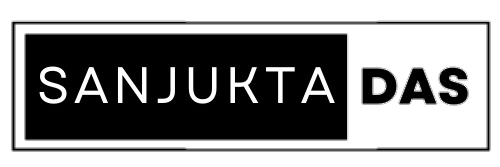
BLOG BY SANJUKTA DAS
Cover letters can indeed be game changers in the job application process. While your resume provides a structured summary of your qualifications and work history, a cover letter offers a more personalized and dynamic opportunity to make a strong impression on potential employers.
Just like resumes, cover letters needs be tailored to each job application. By addressing specific job requirements and demonstrating your understanding of the company’s culture and values, you show that you’ve done your homework and are genuinely interested in the role.
In today’s competitive job market, a well-crafted resume is no longer enough to secure your dream job. To stand out from the crowd and make a lasting impression on potential employers, a good cover letter is essential. Many job seekers underestimate the importance of this document, but, in reality, it can be the key to landing your desired position.
In this post, we’ll explore the significance of a well-written cover letter in a job application.
Demonstrates Genuine Interest
One of the primary purposes of a cover letter is to convey your genuine interest in the company and the specific job role. It’s an opportunity to explain why you’re passionate about the position and how your skills and experiences align with the company’s values and goals. Employers appreciate candidates who take the time to customize their cover letters, as it demonstrates a sincere desire to work for their organization.
Showcases Your Personality
Resumes are typically formal and structured documents that focus on your qualifications and achievements. A cover letter, on the other hand, allows you to inject some personality into your application. It’s a chance to let your potential employer see the person behind the resume. Use your cover letter to highlight your enthusiasm, communication skills, and cultural fit with the company.
Addresses Specific Requirements
While your resume provides a general overview of your qualifications, a cover letter allows you to address specific job requirements and explain how you meet them. If the job posting mentions specific skills or experiences, use your cover letter to provide examples of how you’ve demonstrated those skills in your previous roles. This tailored approach can significantly increase your chances of getting noticed by hiring managers.
Highlights Transferable Skills
A well-written cover letter can help you emphasize transferable skills that may not be immediately apparent from your resume. If you’re switching careers or industries, use your cover letter to explain how your existing skills and experiences can be applied to the new role. This can help bridge the gap between your past experiences and the requirements of the job you’re applying for.
Addresses Employment Gaps or Concerns
If you have employment gaps or other potential red flags on your resume, a cover letter is an excellent place to address these issues. Be honest and concise in explaining any gaps in your work history or career transitions. By doing so, you can alleviate any concerns a hiring manager might have and demonstrate your commitment to the job opportunity.
Demonstrates Strong Communication Skills
Effective written communication is a valuable skill in many professions. A well-crafted cover letter showcases your ability to communicate clearly and persuasively. Employers often use cover letters as a gauge of your writing skills, attention to detail, and professionalism.
So, a good cover letter is not just a formality in the job application process; it’s a powerful tool that can significantly enhance your chances of landing your dream job. It allows you to express your genuine interest, showcase your personality, address specific requirements, highlight transferable skills, and address any concerns on your resume. So, don’t underestimate the importance of this document. Invest time and effort into crafting a compelling cover letter, and it may be the key to unlocking exciting career opportunities.






